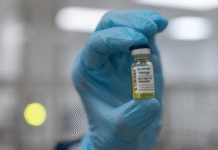AN INTERNATIONAL panel convened in the ISAAA virtual workshop to discuss the science and opportunities of animal biotechnology for food and agriculture, particularly for the Asia Oceania region.
The virtual workshop titled The Impact of Gene Technology in Animal Agriculture and Food Production was organized by ISAAA and the Biotechnology Information Centers in Asia, in cooperation with the United States Department of Agriculture (USDA), Inter-American Institute for Cooperation on Agriculture, Commonwealth Scientific and Industrial Research Organisation (CSIRO) and Virginia Polytechnic Institute and State University (Virginia Tech). It was held from August 31 to September 1, 2021, via Zoom and was divided into seven sessions.
The first day of the virtual workshop started with a session on the science opportunities for biotech animals for food and agriculture by citing examples of gene-edited products and techniques in animals relevant to the region. This was presented by Dr. Carl Ramage of Rautaki Solutions Pty Ltd who is also the Chair of the Institutional Biosafety Committee of La Trobe University in Melbourne, Australia. Session 2 focused on the state of research and development in animal species for food in agriculture. This was divided into four presentations that were based on four animal species. The poultry segment was discussed by Dr. Tim Doran, while the cattle livestock segment was presented by Dr. Laercio Porto Neto. Both are experts from CSIRO in Australia. Dr. Eric Hallerman, a professor at Virginia Tech, tackled the aquaculture segment. Dr. Liangxue Lai from China’s Jilin University presented the swine segment.
Sessions 3 and 4 dealt with policies and regulations of animal biotechnology in different countries. Dr Diane Wray-Cahen of the USDA gave a detailed overview of the policy considerations to help facilitate the adoption and commercialization of genome-edited animals. This was followed by presentations about country policies on animal biotechnology. Dr. Peter Thygesen of the Office of the Gene Technology Regulator represented Australia, Dr Claro Mingala of the Philippine Carabao Center for the Philippines, Isao Nakamura of the Food Safety and Consumer Affairs Bureau of the Ministry of Agriculture, Forestry and Fisheries for Japan, and Dr Sachinandan De of the National Dairy Institute for India.
Risk assessment of biotech animals was discussed in detail during Sessions 5 and 6. The topic on food and feed safety assessment was presented by Dr Lisa Kelly of the Food Standards Australia New Zealand while Dr Tim Strabala of the New Organisms Environmental Protection Authority tackled environmental safety. Both experts gave examples of streamlining measures to facilitate approvals while maintaining safety in both aspects. Lastly, Session 7 focused on effective science communication to raise awareness on animal biotechnology. Dr Alison Van Eeenennaam of the University of California, Davis discussed the principles of science communication and gave tips on how to raise awareness and acceptance of biotech animals.
Question and Answer segments were placed in between sessions to accommodate queries and clarifications from the audience. The workshop was moderated by ISAAA SEAsiaCenter Director Dr Rhodora Romero-Aldemita, Dr Mark Tizard of CSIRO, and Dr Eric Hallerman.
The workshop is an offshoot of the International Animal Biotechnology Virtual Workshop that was held in August 2020. To know more about how to participate in future workshops, follow ISAAA.org on Facebook, Twitter, and Instagram, or email knowledge.center@isaaa.org for inquiries.

















